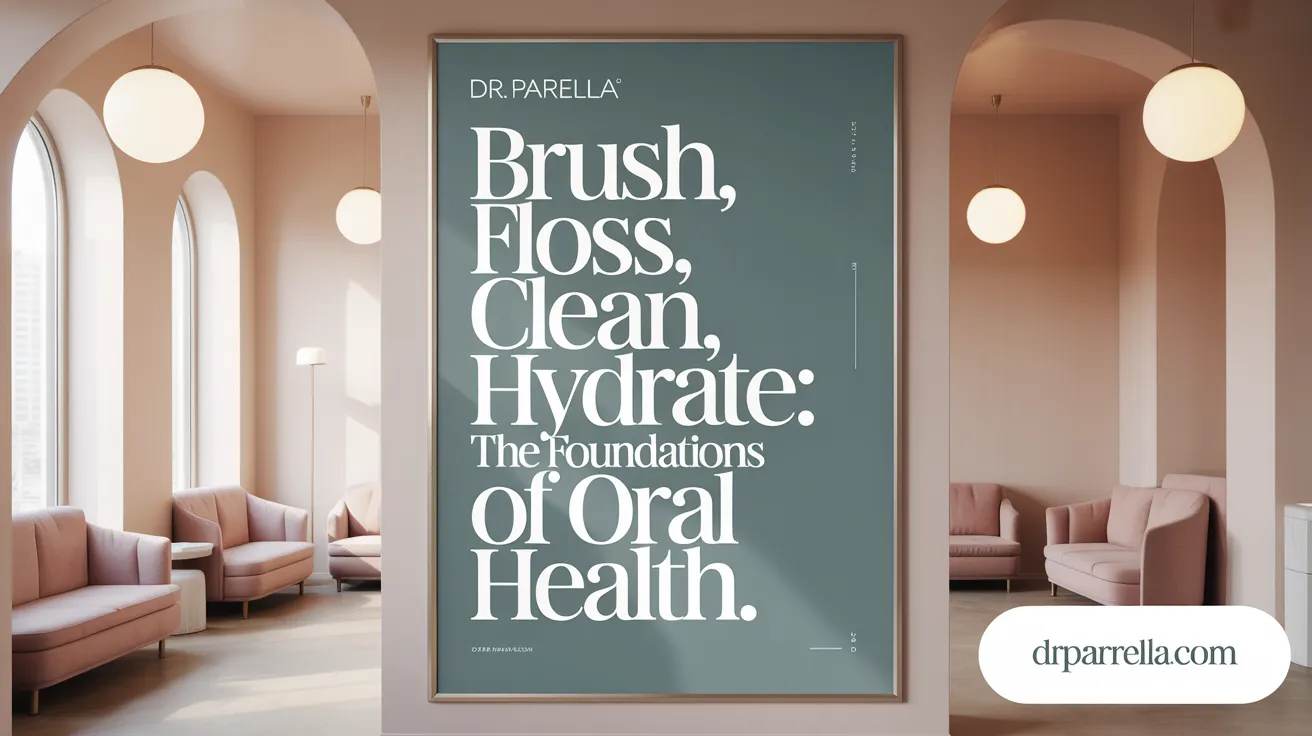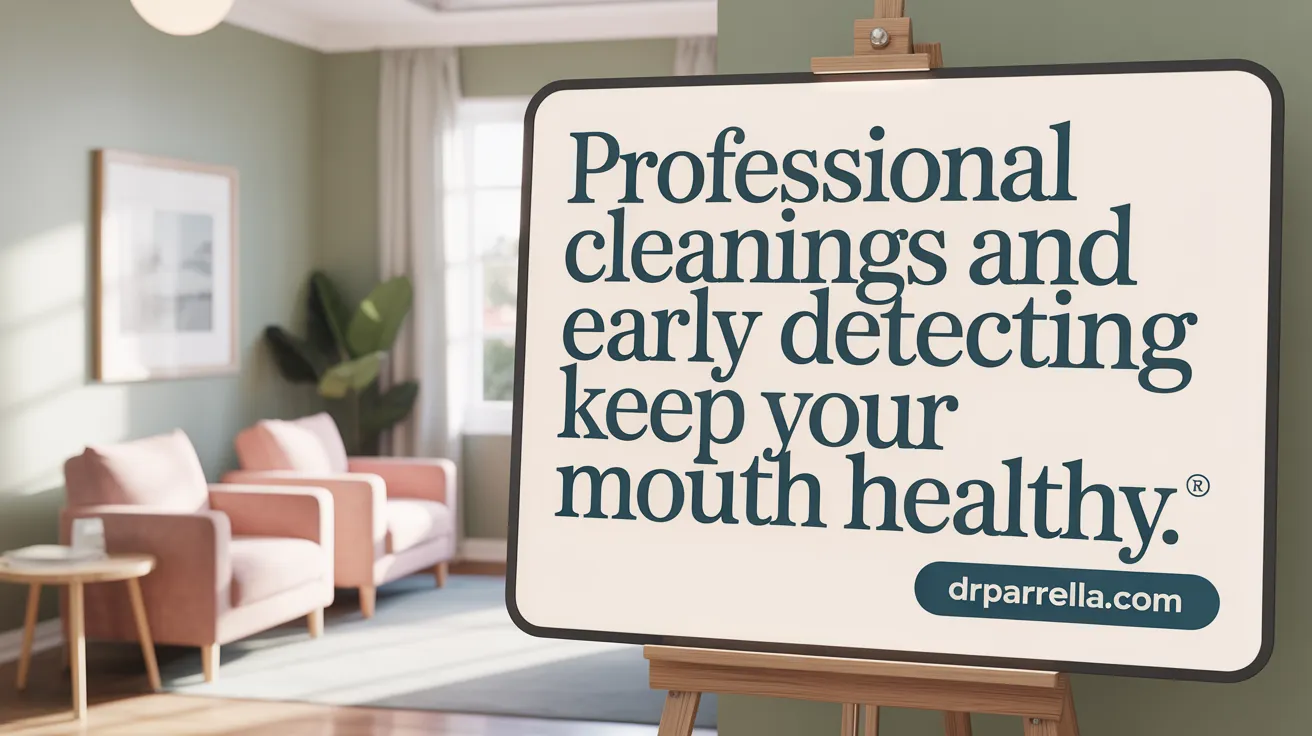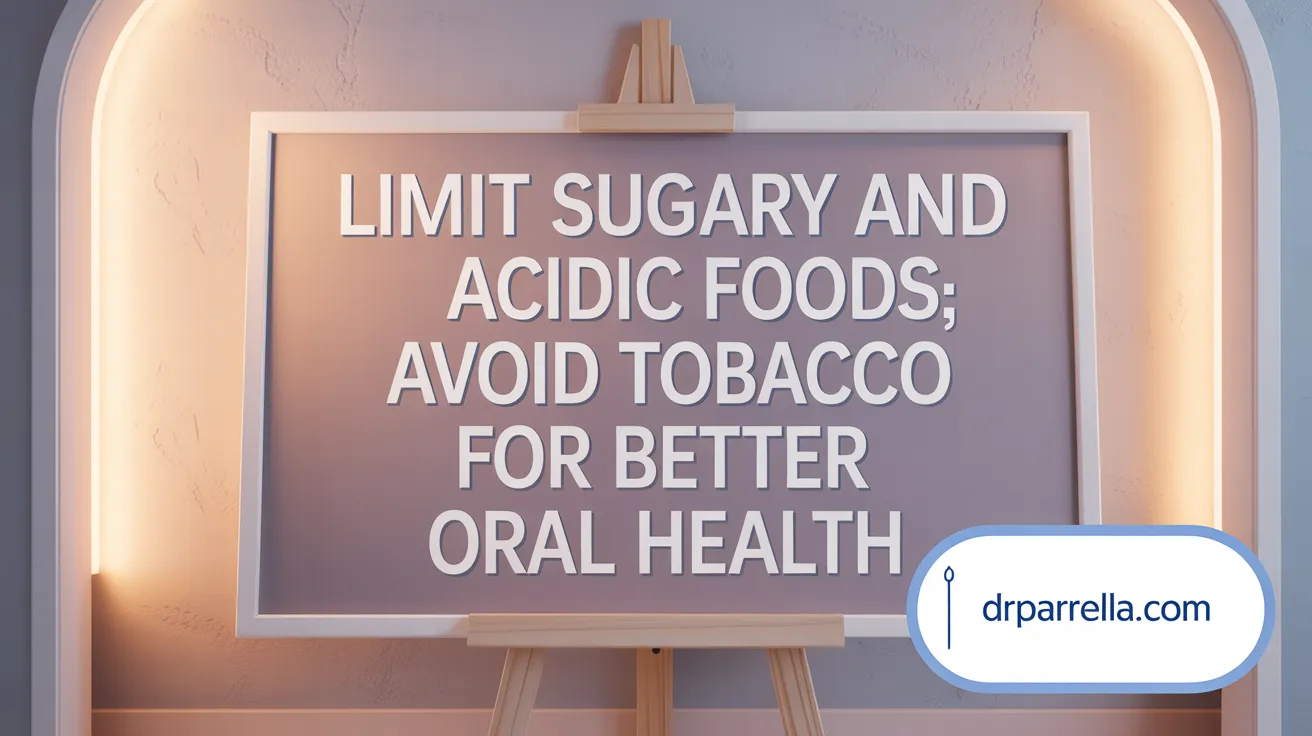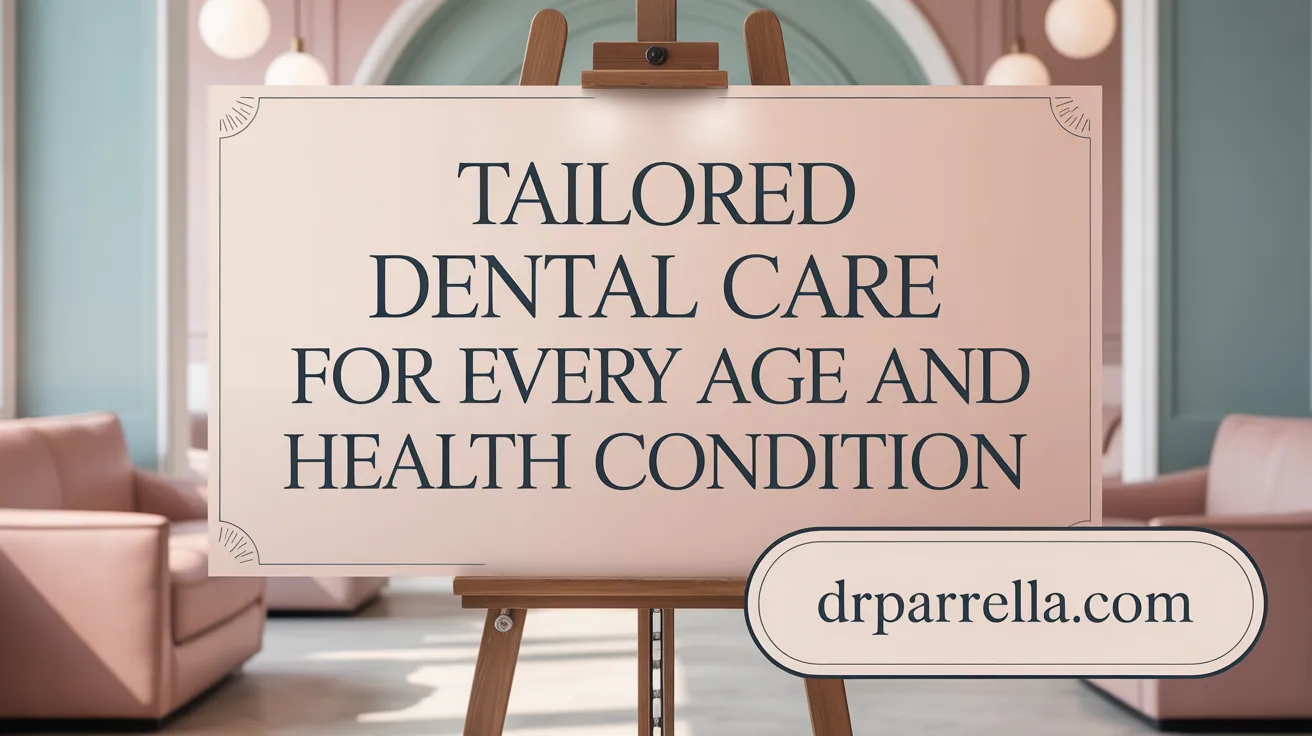Why Prioritize Oral Hygiene for Lasting Wellness?
Oral health is a foundational aspect of overall well-being, influencing not only the condition of teeth and gums but also systemic health conditions such as heart disease, diabetes, and respiratory illnesses. Expert dental hygienists emphasize consistent, effective oral care routines combined with professional guidance to ensure long-term oral health success. This article outlines hygienist-approved practices, lifestyle choices, and preventive strategies critical to maintaining healthy teeth and gums throughout life.
Mastering the Basics: Daily Habits for Optimal Oral Hygiene

What are the fundamental daily oral hygiene practices recommended by dental hygienists?
Dental hygienists emphasize a solid daily routine to keep teeth and gums healthy. Brushing teeth twice a day is crucial. Use a soft-bristled toothbrush angled at 45 degrees toward the gum line. Employ gentle circular motions and brush for about two minutes. This technique helps remove plaque effectively without damaging gums.
Daily flossing is equally important. It cleans the tight spaces between teeth where brushing can't reach, removing plaque and food debris to reduce cavities and gum disease risk.
Cleaning the tongue daily, using a toothbrush or tongue scraper, helps eliminate bacteria that cause bad breath and contributes to overall mouth cleanliness.
Incorporating an antibacterial, alcohol-free mouthwash into your routine can reduce harmful bacteria and plaque buildup. Alcohol-free formulas are preferred to avoid dry mouth.
Regularly replacing your toothbrush every three to four months — or sooner if bristles show wear — maintains effective plaque removal and prevents bacterial buildup on the brush.
Finally, staying hydrated supports saliva production, which naturally cleanses the mouth by neutralizing acids and washing away food particles. Saliva is a key defense in preventing tooth decay and gum problems.
Together, these daily habits form the foundation of optimal oral hygiene recommended by dental professionals for a healthy smile and long-term oral health.
Regular Dental Visits and Professional Care: Cornerstones of Oral Health Maintenance

How do regular dental visits contribute to long-term oral health success?
Routine dental visits, typically scheduled every six months, play a crucial role in maintaining oral health over the long term. During these visits, dental professionals perform thorough cleanings that remove tartar and plaque buildup, which cannot be eliminated by regular brushing and flossing alone. This professional cleaning helps to prevent cavities, gum disease, and other oral problems.
In addition to cleaning, dental exams allow for early detection of issues such as tooth decay, gum inflammation, oral cancers, and other health concerns affecting the teeth and gums. Early intervention can prevent minor problems from developing into more severe and costly conditions.
Dental professionals tailor visit frequency based on individual risk factors, such as history of dental issues, chronic diseases, or lifestyle habits. Some patients may require more frequent visits for optimal care. During appointments, dentists and hygienists recommend oral health products that carry the American Dental Association (ADA) Seal of Acceptance, ensuring these products meet rigorous standards for safety and effectiveness.
Consistent professional care through regular dental exams and cleanings supports sustained oral health, reduces the need for complex restorative treatments, and contributes to overall well-being by preserving healthy teeth and gums.
Diet, Lifestyle, and Environmental Factors Impacting Oral Health

What lifestyle and dietary factors should be considered for long-term oral health?
Maintaining good oral health goes beyond brushing and flossing; diet and lifestyle choices play a significant role. A balanced diet rich in calcium, vitamin D, and crunchy fruits and vegetables helps strengthen tooth enamel and boosts saliva production. Saliva is essential for washing away food particles and neutralizing acids in the mouth (Maintaining gum health after periodontal treatment & Dental hygienists' oral care tips).
Limiting intake of sugary and acidic foods and drinks is crucial because these substances feed harmful bacteria that produce acids leading to enamel erosion and cavities (Reducing sugar intake for oral health & Limiting sugary foods for teeth health). Frequent snacking on sugary sodas or candies increases acid exposure, raising the risk of tooth decay (Prevent cavity formation).
Avoiding tobacco use is vital, as smoking significantly increases the risk of gum disease, oral cancer, and can slow healing after dental procedures (Avoiding tobacco for oral health & Risks of smoking on oral health). While moderate alcohol consumption has some benefits in reducing certain cancer risks, excessive alcohol intake contributes negatively to oral health (Alcohol consumption and cancer risk).
Managing dry mouth is another important aspect. Many medications and health conditions cause reduced saliva flow, leading to higher decay risk (Managing dry mouth. Staying well-hydrated, chewing sugarless gum to stimulate saliva, and avoiding tobacco and alcohol help mitigate dry mouth problems (Hydration and saliva production.
Oral piercings, such as tongue or lip piercings, can cause tooth wear, fractures, and gum recession. Dental professionals generally discourage these practices due to their potential to harm teeth and gums (Risks associated with oral piercings).
By adopting these dietary and lifestyle habits, individuals can support their oral health, prevent dental issues, and contribute to overall well-being (Oral health and overall health & Benefits of good oral hygiene.
Special Considerations Across Life Stages and Health Conditions

What specific oral health considerations apply at different life stages and for certain health conditions?
Oral health needs vary significantly across different life stages and health conditions, requiring tailored care approaches to maintain optimal dental wellness.
Pregnancy brings unique challenges due to hormonal changes that increase susceptibility to cavities and gum disease. Maintaining diligent oral hygiene—including brushing twice daily with fluoride toothpaste, flossing, and regular dental visits—is essential. Prenatal dental care not only supports the mother’s health but also positively impacts the baby’s well-being, as untreated gum disease is linked to pregnancy complications (oral health in pregnancy).
Older adults experience a natural decline in saliva production, which heightens the risk of dry mouth and tooth decay. Receding gums and enamel erosion are also common, increasing sensitivity and vulnerability to infections. Adaptive oral care tools such as electric toothbrushes, floss holders, and regular denture cleaning routines provide important support (dental hygiene tips for seniors). Additionally, caregivers may need to assist those with physical or cognitive limitations to maintain effective oral hygiene.
Individuals with chronic diseases like diabetes, arthritis, and cardiovascular conditions face an increased risk of gum disease and tooth loss. Diabetes management is particularly critical, as controlling blood sugar can lower gum disease severity. Frequent dental monitoring and preventive care help avoid complications (oral health and systemic diseases.
Dry mouth management involves staying hydrated, chewing sugarless gum to stimulate saliva, and avoiding tobacco and alcohol, which exacerbate symptoms. Saliva plays a key protective role by neutralizing acids and washing away bacteria (oral health tips for adults.
Maintaining good oral hygiene is not only vital for dental health but also critical for overall systemic health. There is a strong bidirectional relationship linking oral disease with conditions such as diabetes, heart disease, and stroke. Effective oral care and disease management can mutually improve outcomes, highlighting the importance of integrative healthcare approaches across the lifespan.
Preventive and Advanced Dental Care Techniques Supporting Hygiene Success
What preventive and advanced dental care approaches enhance long-term oral health?
Minimally invasive care (MIC) focuses on prevention, early detection, and preserving natural tooth structure to maintain oral health effectively. Techniques include the use of silver diamine fluoride (SDF), fluoride varnishes, and antimicrobial agents that halt or reverse tooth decay without extensive drilling or restorative procedures. These methods reduce the need for more invasive treatments and help maintain healthy teeth and gums over time.
Advanced diagnostic tools such as digital imaging and intraoral cameras allow dental professionals to detect early signs of dental disease more accurately and conveniently. These technologies enable timely intervention before issues progress, improving outcomes and reducing treatment complexity.
Tailored treatment plans that consider an individual's oral health risks and needs enable targeted prevention and maintenance efforts. These personalized approaches optimize resource use and patient compliance, improving long-term oral hygiene success.
Educational and motivational strategies like motivational interviewing (MI) and health coaching delivered by trained dental practitioners have proven effective in encouraging patients to adopt and sustain good oral care habits. These approaches foster behavior change by addressing individual barriers and enhancing patient engagement. Learn more about health coaching and motivational interviewing in dental practice.
Adjunctive services such as bacterial testing and customized fluoride therapy further support preventive dental care by addressing specific risk factors and reinforcing daily oral hygiene routines.
Together, these advanced and preventive dental care methods create a comprehensive framework that promotes lasting oral health and reduces the prevalence of dental disease.
The Holistic Impact of Oral Health: Beyond the Mouth
How does maintaining good oral health contribute to overall health and quality of life?
Maintaining good oral health plays a crucial role far beyond just a healthy smile. Proper oral hygiene helps reduce the risk of serious systemic diseases such as cardiovascular disease, stroke, diabetes complications, respiratory infections, and several cancers. This is largely due to controlling harmful bacteria and inflammation in the mouth that can influence overall body health.
Beyond physical health, oral health significantly impacts emotional and social wellbeing. Healthy teeth and gums improve self-esteem and confidence, enhancing social interactions and reducing the distress that can arise from dental pain or discomfort. For more on the relationship between oral health and quality of life, see Oral health and overall health.
Preventive oral care offers notable economic benefits by lowering the need for expensive restorative treatments and emergency dental care. Investing in everyday preventive oral care helps avoid complex procedures and costly interventions later on.
Dental hygienists contribute vital expertise within multidisciplinary healthcare teams, especially in long-term care settings. They provide direct patient care and education to both patients and caregivers, ensuring comprehensive support that improves oral and overall health outcomes. Details on the role of dental hygienists and multidisciplinary care teams can be found at oral health in long-term care.
At the public health level, community-based education, interprofessional collaboration, and health policies integrating oral care promote equitable access. This approach aligns with global health strategies to sustain oral health improvements and reduce disparities in various populations as described in Achieving oral health for all through public health approaches.
Achieving Lifelong Oral Health: Empowerment Through Hygiene and Care
Achieving and maintaining excellent oral health is a lifelong commitment supported by disciplined personal hygiene practices, regular professional care, mindful lifestyle choices, and awareness of individualized needs across different life stages. Dental hygienists provide essential guidance and clinical support to empower individuals in preventing oral diseases that not only threaten dental health but may also impact systemic well-being. Integrating advanced preventive care techniques, fostering behavior change, and embracing a holistic view of oral health underscore the pathway to sustaining a radiant smile and robust health for years to come.
